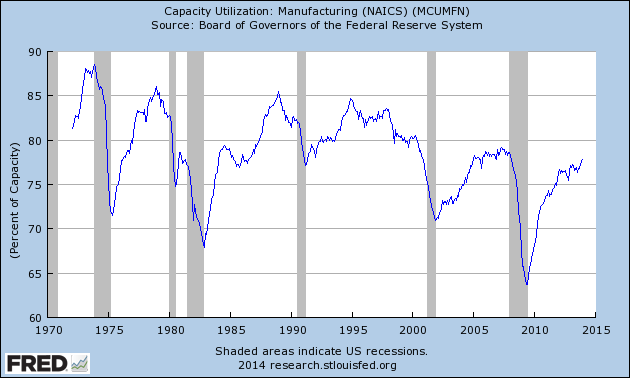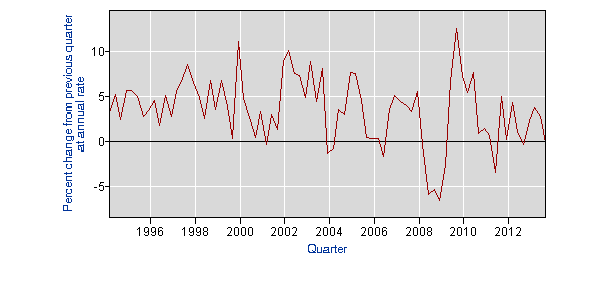January 23, 2014
Actually the headline of the WSJ piece is “why hiring lags behind even as factories hum.” It then presents accounts of several companies putting off hiring and expansion plans because of uncertainty about the course of the economy. Several factory owners or managers report increasing the length of the workweek or investing in new technology as an alternative to new hiring.
While the anecdotes are interesting, the reality is that the main reason that firms are not hiring is that manufacturing is not humming. Capacity utilization rates are up from the recession troughs but at 77.8 percent are still below pre-recession levels, and far below the 82 percent plus range reached in the mid-1990s before a rising dollar led to a surge in the trade deficit and falling manufacturing employment.

The WSJ could have also discovered that its story that firms are turning to longer hours and capital investment as alternatives to hiring does not make sense by looking at data on hours and productivity growth in manufacturing. Neither show much support for its story. Average weekly hours are up very slightly compared to pre-recession levels or the mid-1990s, the last time there was consistent hiring in the sector, but the differences are small. The average workweek in 2013 was 41.9 hours, compared to 41.7 hours in 1997. The increase was entirely in non-durable manufacturing as there was a small drop in hours in durable goods manufacturing. And productivity growth has actually been relatively weak in recent years, going in the opposite direction as would be expected if firms were investing heavily to avoid hiring.

Productivity growth in manufacturing has averaged less than 2.0 percent in the last 3 years compared to an average of more than 4 percent in mid-1990s. It would have been useful for readers if the WSJ had taken advantage of government data instead of just talking to a small number of plant managers.







Comments